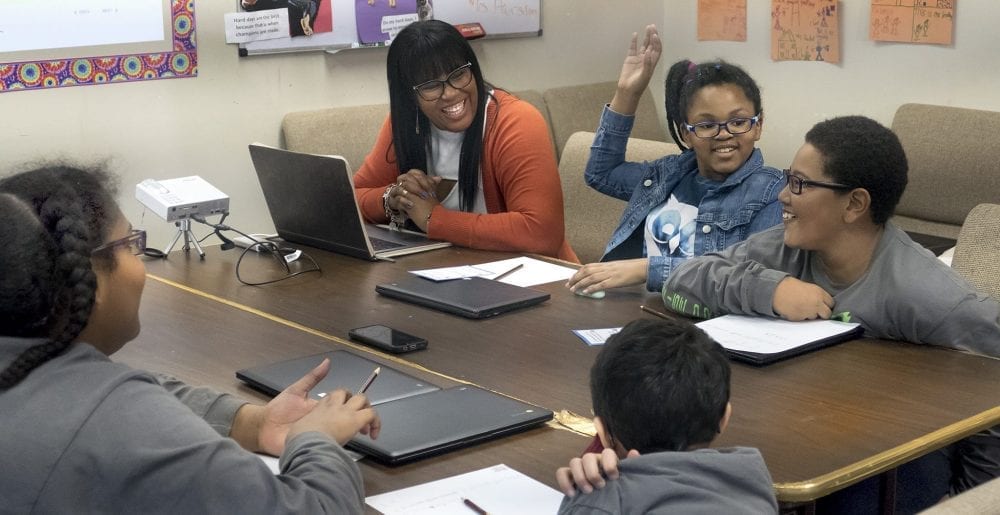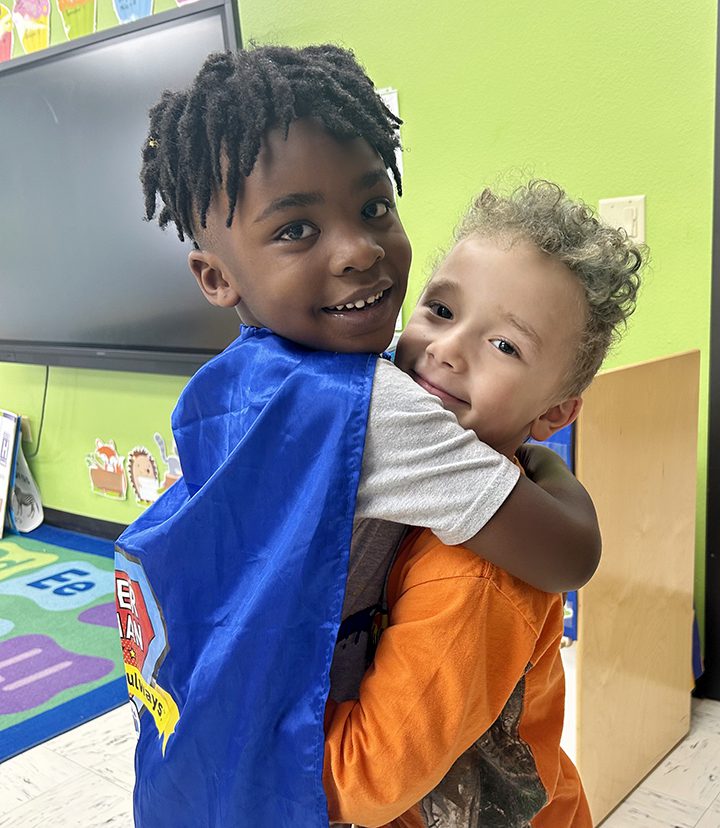Research-Based Learning

When Respectful Ways describes its practices as research-based, we’re committing ourselves to purposes, personnel, processes, and pedagogies that follow scientific research and best practices in education.
Purposes: We support a holistic approach to social emotional learning that integrates creativity, discussion, play, writing, and social involvement. Following the moral ecology FACETS framework developed by the Institute for Advanced Studies in Culture, along with work from Ron Miller and Stephanie Jones, we seek transformation over mere transmission of information. To accomplish this, we design activities that develop compassion, perseverance, respect and responsibility within the classroom setting and outside in the child's home and community.
This Response to Intervention (RTI) Research study stresses the importance of SEL activities to be project-based; songs, art, games, class discussion and writing, as opposed to just an online-only format. This is a philosophy Respectful Ways follows in all our modules including students sharing their thoughts, fears and dreams in their Respectful Ways notebooks. Our interactive on-line delivery system helps stimulate creativity, discussion and ideas - a necessary tool, but only part of the learning process.
Personnel: Our curriculum writers are all teachers trained in educational theory and seasoned by classroom experience. They bring this expertise to bear on their lesson planning. As they design activities, they anchor their programming in the latest scientific research and pedagogical strategies. We also include additional hyperlinks and resources with every module for educators and counselors to explore the topic further.
Processes: We are dedicated to developing curriculum that works for our schools. That’s why we pilot test our modules, align them with curricular frameworks for SEL from CASEL and the Wallace Foundation, and have them evaluated by researchers (most recently by a group from Georgia State University and by Marian University in the 2018/19 school year.) We request a short teacher survey for feedback after every module is taught, and then respond to said teacher feedback by updating modules and supplements when needed. The benefit of an online program is that we’re constantly updating and improving our product - for you - based on what we’re hearing - from you. Taking the time and effort to be this responsive to the data we've gathered ensures that our product has proven effectiveness.
Pedagogies: The heart of our program is lesson planning structured to promote ease of use and student discovery in the classroom. Using a variety of media, our curriculum engages all the senses and intelligences. We carefully calibrate it to meet curricular standards -- both American School Counselor Assn Standards and Common Core College and Career Readiness Standards -- and integrate with initiatives like PBIS. Every module includes interactive multimedia e-courses, Respectful Signage, teacher supplements to guide instruction, and additional resources. Activities have a clearly-articulated objective and rationale, an introduction (usually consisting of interactive Q&A, a short video and/or discussion) and an activity to galvanize learning. The “Respectful Wrap” puts the activity in perspective, prompting metacognitive reflection. Each activity concludes with students reciting the unit’s Promise pledge together, creating resolve and solidarity in the class.
Because we seek to transform habits of students and not just transfer information to them, we use three practices to design all our activities, helping students to internalize their own motivation:
- Analysis – What does this mean?
- Accountability – What have I experienced like this before?
- Action – How can I use this in my life?
Sources used in our research:
Clark, Jr., Edward. Designing and Implementing an Integrated Curriculum: A Student-Centered Approach. Brandon, VT: Holistic Education Press, 1997. Integrated Curriculum in the Primary Program
Dweck, Carol. Mindset: The New Psychology of Success. New York: Ballantine Books, 2007. Sources of Insight. 10 Big Ideas from Mindset: The New Psychology of Success
Gardner, Howard. Changing Minds: The Art and Science of Changing Our Own and Other People’s Minds. Cambridge: Harvard Business Review Press, 2006. Gardner, Howard. The Nine Different Types of Intelligence
Gay, Lorraine R. and Geoffrey E. Mills. Educational Research: Competencies for Analysis and Applications. 10th ed. Upper Saddle River, NJ, 2011.
Jones, Stephanie et al. Navigating SEL from the Inside Out: Looking Inside and Across 25 Leading SEL Programs. Cambridge: Harvard Graduate School of Education, 2017.
Kist, William R. The Socially Networked Classroom: Teaching in the New Media Age. Thousand Oaks, CA: Corwin, 2009. Also, William Kist PhD, Webinar Presentation slides.
Miller, Ron. What Are Schools For? Holistic Education in American Culture. Brandon, VT: Holistic Education Press, 1999. Also, Ron Miller, Educating the Child's Inner Power.
Pink, Daniel. A Whole New Mind: Why Right-Brainers Will Rule the Future. 2006. New York: Berkeley Books, 2006. Also, Webinar Presentation slides.
Tough, Paul. Helping Children Succeed: How Children Succeed: Grit, Curiosity, and the Hidden Power of Character. Boston: Mariner, 2013.
Nagaoka, Jenny et al. Foundations for Young Adult Success: A Developmental Framework. Chicago: The University of Chicago Consortium on Chicago School Research, 2015.
Cooper, R.N. (2014). Response to intervention (RTI): a mixed methods study evaluating the effects of behavior training software on behavior of in- school suspension students (Doctoral thesis). Retrieved from ProQuest Dissertations and Theses database. (UMI No. 3611257)


 Our 1st graders loved the Be Kind: It Feels Good course. The Kindness Hunt and bucket filling activities were the best. Very engaging.
Our 1st graders loved the Be Kind: It Feels Good course. The Kindness Hunt and bucket filling activities were the best. Very engaging. The Bored, Get Creative module was perfect for our 4th graders pre-winter break. We talked about things they could do if “bored”.
The Bored, Get Creative module was perfect for our 4th graders pre-winter break. We talked about things they could do if “bored”.